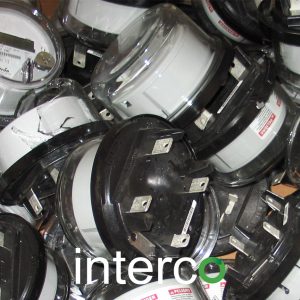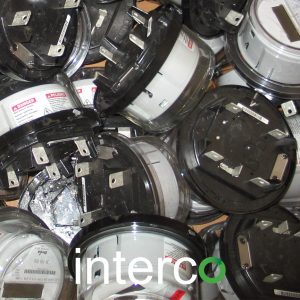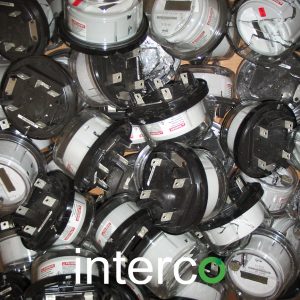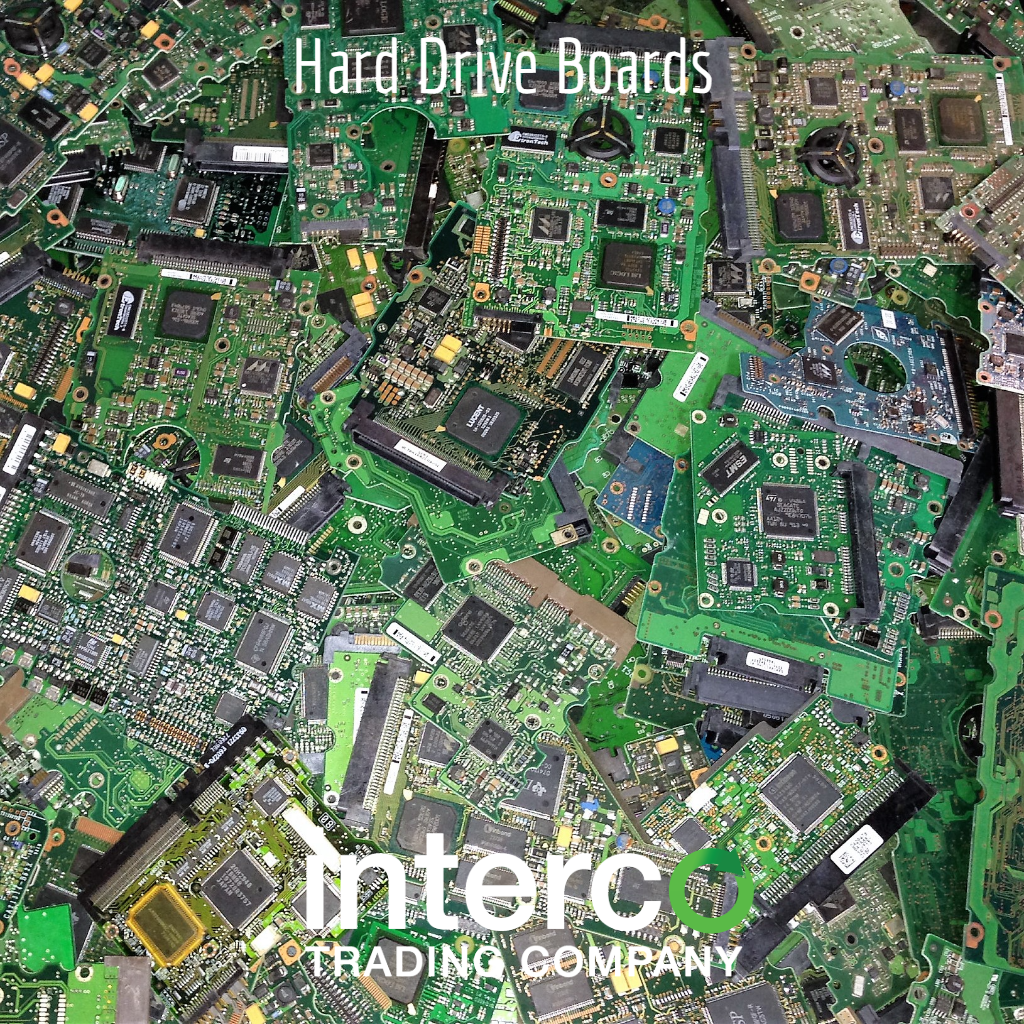Electric Meter Recycling in Georgia
Interco works with electric companies and electric cooperatives to recycle electric meters. Electric meter recycling in Georgia exhibits to be a fundamental practice due to the degree of changes with electric meter technology.
Analog electric meters once required a meter reader to stroll around neighborhoods, read the meters, and come back to the office. After this process, they needed to physically enter the data to process a receipt for the services. Unavoidably, smart meters supplanted analog meters. Smart meters changed the structure for information gathering for utility organizations.

The introduction of smart meters meant meter readers never again needed to walk house-to-house. Therefore, they could drive a well-prepared van through an area and gather the information transmitted directly. Smart meters continue overriding analog meters. At this moment, manufacturers produce much smarter meters outfitted with 5G technology. The new meters offer more exactness and information security and can pinpoint the unmistakable locale of a meter inside a couple of feet or less.
Electric affiliations will have more old meters in the following decade than in the previous 25 years combined as a result of movements in technology. Thus, affiliations must continue to recycle utility meters.
Preparing to Recycle Electric Meters
In order to recycle utility meters correctly, companies must understand the different types of meters:

- Analog meters with glass covers
- Digital meters with glass covers
- Digital meters with plastic covers
These meters all have various characteristics and distinct preparation processes. Analog meters have the least amount of value and often come with a glass cover that must be removed. Digital meters have a higher worth and routinely have a plastic covering that does not need to be expelled. Glass covers weigh a ton and ought to be expelled from all scrap utility meters before recycling. Thus, the glass covers weigh more than the meter itself and could interfere with electric meter recycling in Georgia. Exhausting glass covers shows to be imperative in order to recycle utility meters.
After disconnecting various meters and possibly expelling the cover, companies must pack their scrap utility meters for transportation. Packing loosely in palatalized Gaylord boxes shows to be the best approach for moving scrap utility meters. Therefore, this process allows for sensible stacking and exhausting, proficient trailer packing, and reduced transportation costs. In fact, Interco can provide pallets and packing supplies for transportation if organizations need them.
Why Recycle Electric Meters
After Interco gets the accurately bundled scrap utility meters without glass coverings, the framework to recycle electric meters starts. Interco has many years of experience in electric meter recycling in Georgia. This experience licenses Interco to have up to a 98% material recycling and recovering rate. As a result, Interco will continue with this rate by:

- Detaching stainless steel rings and collars
- Refining all non-ferrous and ferrous metals
- Disconnecting circuit boards
- Baling cardboard boxes
In addition to preventing the landfilling of scrap utility meters, electric meter recycling in Georgia gives additional focal points. Interco must continue to recycle electric meters and different materials can be found inside these meters:

- Insulated copper wire
- Aluminum ground wire
- Brass screws
- Printed circuit boards
- Steel
Conclusion
Taking everything into account, the need to recycle utility meters develops each day. Thus, technology develops quickly and will continue to do so. Therefore, the degree of old electric meters will continue to increase. Responsible companies must locate the right recycler to send their scrap to. Finally, Interco recycles thousands of meters every year. Click here if you have any questions on how to recycle electric meters with Interco.